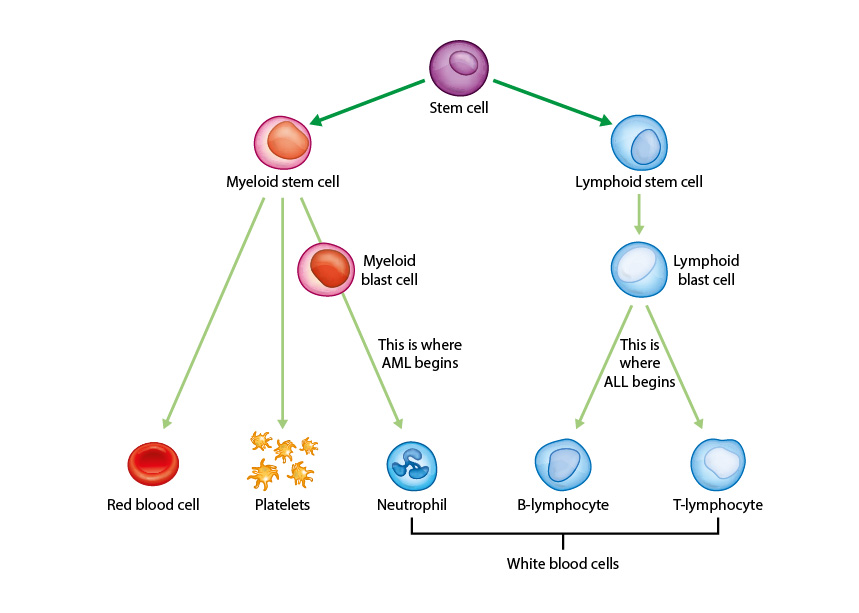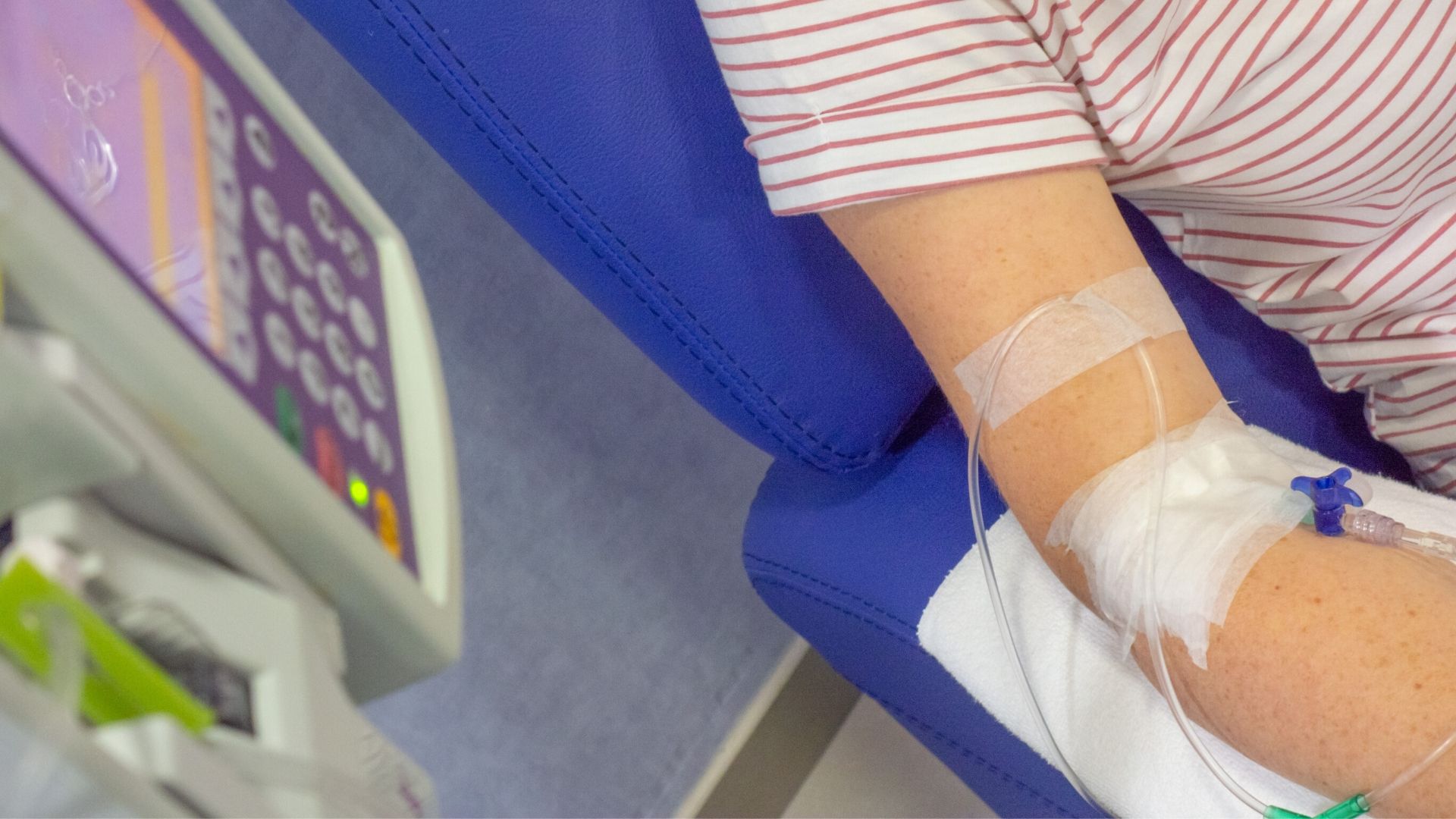
Chronic myeloid leukaemia (CML)
CML affects about 60 people in Ireland each year. It is more common in men than women.
CML is treated with targeted therapies, chemotherapy, steroid therapy and stem cell transplants, depending on the type.
What is chronic myeloid leukaemia (CML)?
Chronic myeloid leukaemia (CML) is a slow-growing type of leukaemia (cancer of the blood) that affects a group of blood cells known as myeloid cells. Myeloid cells include a type of white blood cell known as granulocytes. With CML, the body makes too many granulocytes. These fill up the bone marrow, preventing normal blood cells from being made. This can leave you more at risk of infection or feeling tired and weak. How CML affects you depends on which phase it is in.
With the right medication, many people with CML have no symptoms and can lead a normal life.
More information about CML
More information about a CML diagnosis
More information about CML treatment
Treatment for CML includes targeted therapies, chemotherapy, steroid therapy and stem cell transplants. For more information about treatments for CML, visit our treatment page. For specific information use the links below.
Coping with CML treatment and side-effects
Medical content updated from our Understanding Chronic Myeloid Leukaemia (CML) booklet (2024). Reviewed by Dr Yizel Paz Nunez, Consultant Haematologist, Joan McGrory, Haematology Clinical Nurse Specialist and Sinead Power, Daffodil Centre Nurse.
Looking for support?
Our cancer support section contains information and advice on coping with cancer for diagnosed patients and their loved ones.
The Irish Cancer Society uses the most up-to-date cancer statistics from the National Cancer Registry Ireland, available on www.ncri.ie
For more information
Phone
1800 200 700










